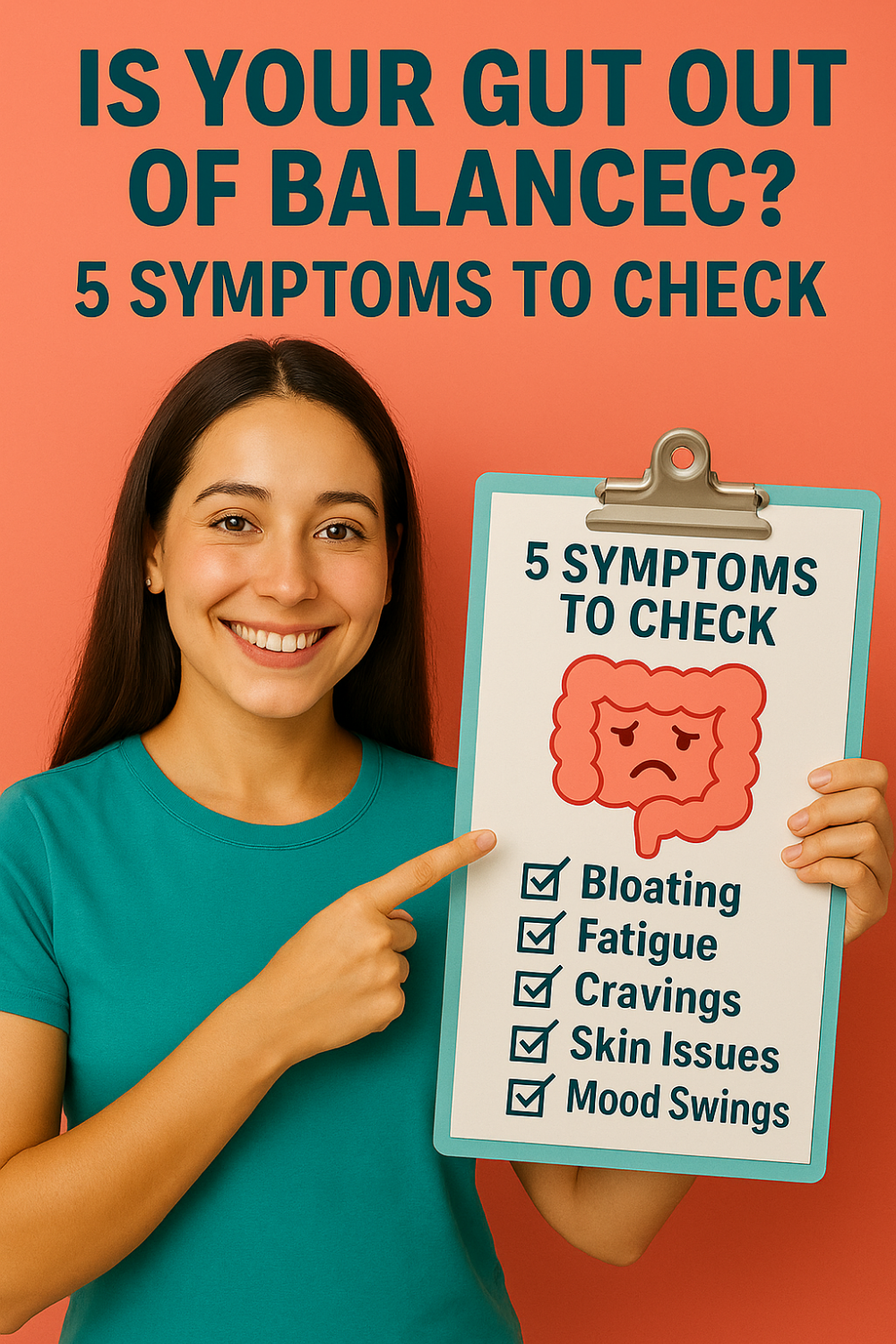Your gut is often called your body’s “second brain,” playing a significant role in digestion, immune response, mood, and overall health. However, many people overlook gut health until symptoms become severe. Recognizing early signs that your gut health needs attention can save you discomfort, time, and even medical bills. This article covers five evidence-based, easily identifiable signs your gut health might be compromised and practical ways to restore balance quickly.

- Understanding the Importance of Gut Health
- Frequent Digestive Discomfort
- Unexplained Fatigue and Sleep Issues
- Persistent Skin Problems
- Sudden Mood Changes
- Food Intolerances or Sensitivities
- Practical Steps to Improve Gut Health Immediately
Understanding the Importance of Gut Health
A balanced gut microbiome, filled with beneficial bacteria, is essential for optimal digestion, nutrient absorption, immune function, and mood regulation. When gut balance shifts negatively, symptoms quickly surface, indicating potential issues that need immediate attention. Early recognition helps prevent chronic digestive disorders, systemic inflammation, and more severe health conditions.
Here are five critical signs indicating your gut health requires immediate attention and evidence-based strategies to quickly address each one:
Frequent Digestive Discomfort
If you regularly experience bloating, gas, constipation, diarrhea, or abdominal pain, it may indicate imbalanced gut microbiota. Persistent digestive discomfort signals poor digestion or inflammation in your gut lining. A 2018 study published in Frontiers in Microbiology demonstrated clear links between digestive symptoms and gut bacterial imbalances.
How to quickly improve this:
- Probiotics: Regularly consuming probiotic-rich foods like yogurt, kefir, and fermented vegetables rapidly restores healthy gut bacteria, easing digestive discomfort.
- Dietary Fiber: Incorporate fiber-rich foods like oats, beans, and leafy greens to improve digestive regularity quickly.
Unexplained Fatigue and Sleep Issues
Your gut health significantly influences sleep quality and energy levels. Imbalances disrupt sleep patterns and nutrient absorption, leaving you tired and sluggish. A 2020 study in Sleep Medicine Reviews revealed a direct connection between poor gut health, reduced sleep quality, and chronic fatigue.
How to quickly improve this:
- Gut-Healing Foods: Include nutrient-rich, gut-friendly meals with probiotics and prebiotics regularly.
- Reduce Sugar and Processed Foods: These foods cause energy crashes and negatively affect gut microbiome balance.
Persistent Skin Problems
Your gut-skin connection is powerful. Skin issues like acne, eczema, rosacea, or inflammation often signal gut health problems. According to a review published in Microorganisms (2021), gut imbalances directly increase systemic inflammation, manifesting as persistent skin conditions.
How to quickly improve this:
- Anti-inflammatory Foods: Include foods like turmeric, ginger, leafy greens, and berries regularly to soothe inflammation.
- Hydration: Staying hydrated supports toxin removal, digestion, and promotes clear skin.
Sudden Mood Changes
Your gut produces about 90% of your body’s serotonin, a key neurotransmitter regulating mood and stress levels. Gut imbalances can rapidly alter serotonin production, causing mood swings, anxiety, depression, and irritability. Research published in Psychosomatic Medicine (2019) demonstrated a strong link between gut microbiota imbalance and mood disorders.
How to quickly improve this:
- Mindful Eating: Eating slowly, chewing thoroughly, and avoiding distractions promotes optimal digestion and serotonin balance.
- Probiotics & Fermented Foods: Regular consumption helps rebalance gut microbiota and enhances mood stability.
Food Intolerances or Sensitivities
Developing sudden or increasing sensitivities to foods like gluten, dairy, or certain vegetables often suggests gut lining damage or inflammation, known as “leaky gut.” This condition allows undigested food particles to enter the bloodstream, triggering inflammation and immune responses. According to a 2020 review in Nutrients, healing your gut lining rapidly reduces food sensitivities.
How to quickly improve this:
- Bone Broth: Rich in collagen, it effectively heals gut lining damage quickly.
- Elimination Diet: Temporarily eliminate known trigger foods and gradually reintroduce them after gut healing.
Practical Steps to Improve Gut Health Immediately
If you’re experiencing one or more of these gut health symptoms, implement these practical, evidence-based strategies immediately for rapid improvement:
Step 1: Increase Probiotics and Prebiotics
- Probiotics (yogurt, kefir, sauerkraut) restore beneficial gut bacteria.
- Prebiotics (bananas, onions, garlic) feed probiotics, enhancing gut diversity.
Step 2: Hydrate Adequately
- Drink at least 8 glasses of water daily to support digestion, nutrient absorption, and toxin removal.
Step 3: Incorporate Anti-inflammatory Foods
- Regularly consume turmeric, ginger, leafy greens, and berries to reduce gut inflammation.
Step 4: Reduce Stress
- Chronic stress significantly disrupts gut microbiome balance. Practice meditation, yoga, or mindful breathing to manage stress effectively.
Step 5: Limit Harmful Foods
- Avoid excessive sugar, processed foods, artificial sweeteners, and alcohol, which negatively affect gut microbiota balance.
Step 6: Regular Exercise
- Regular moderate exercise enhances gut motility and microbial diversity, quickly improving gut health and overall wellness.
Maintaining Long-Term Gut Health
After addressing immediate gut health issues, implement consistent habits for ongoing digestive wellness:
- Regularly consume gut-friendly foods (probiotics, prebiotics, fiber-rich foods).
- Maintain hydration and balanced nutrition consistently.
- Practice stress management and mindfulness daily.
- Exercise regularly to support gut and overall health.
Frequently Asked Questions
How quickly can gut health improve with dietary changes?
Most people experience notable digestive improvements within a few days of consistent dietary adjustments.
Are probiotics safe to take regularly?
Yes, probiotics from foods or supplements are safe and beneficial for ongoing gut health when used as recommended.
Can stress alone significantly impact gut health?
Yes, chronic stress directly affects gut bacteria balance and can rapidly exacerbate digestive symptoms.
Is bloating always a sign of poor gut health?
Occasional bloating is common, but frequent bloating often indicates gut imbalance or digestive issues.
Can improving gut health really help skin conditions?
Absolutely. Studies confirm reducing gut inflammation often significantly improves various skin conditions rapidly.